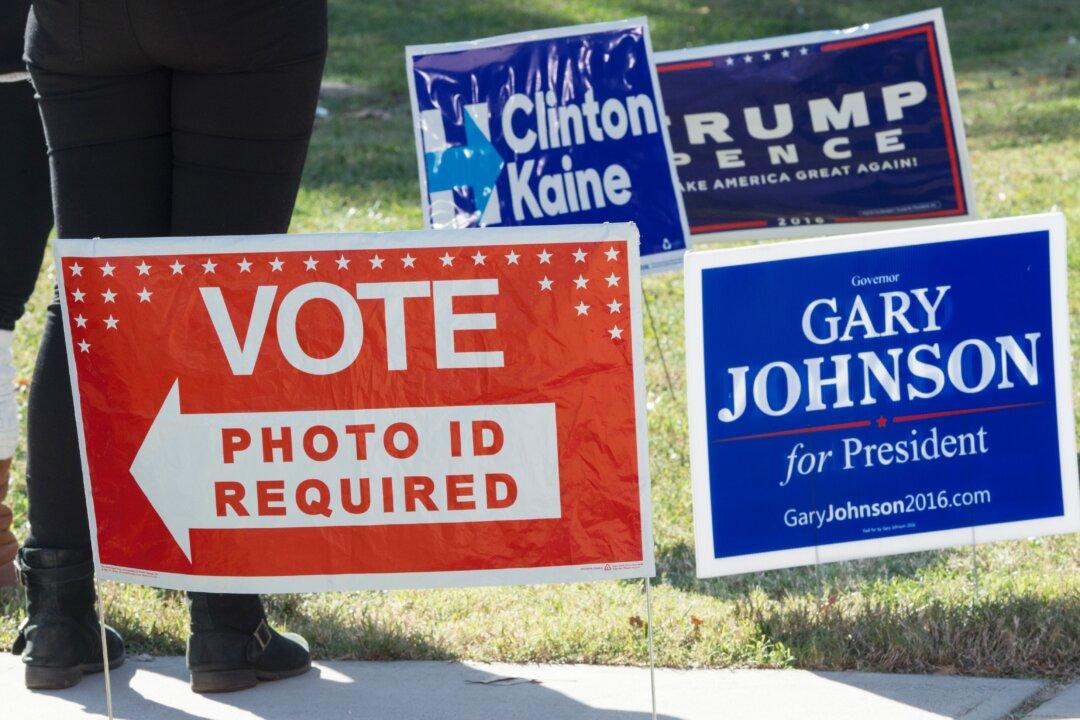NEW YORK—Defiant into the 2016 election’s last day, Donald Trump raised doubts about the integrity of the U.S. election system on Tuesday as he cast his own ballot for president.
The Republican White House contender refused to say whether he would concede defeat if he loses and continued to voice concerns about voter fraud, two statements that challenged bedrock principles of American democracy: fair and free elections and the clean transfer of power.
Trump offered an optimistic outlook about his chances, citing evidence of “tremendous enthusiasm” from his supporters.
But Trump said only, “We'll see what happens,” when reporters at his polling place asked whether he would concede defeat should media organizations ultimately project Democrat Hillary Clinton as the winner. He also noted he’s “always concerned” about voter fraud when asked about the issue.
The GOP nominee was joined by his wife, Melania, his daughter Ivanka, his son-in-law Jared Kushner and his granddaughter Arabella while voting at a public school on Manhattan’s East Side. He was booed loudly by onlookers gathered on the sidewalks outside of the school, which had been sealed off with police barricades.
There is no evidence of widespread voter fraud in American elections. Such claims have become a regular part of Trump’s warnings of a “rigged election”—a central argument from an outsider candidate who has repeatedly challenged the norms of presidential politics.
Trump’s outsider status has both hurt and helped him over the last year.
His political inexperience allowed him to cast himself as a change agent just as frustrated voters in both parties seemed hungry for change. The message was particularly effective against Clinton, a fixture in public service over the last three decades.
Yet Trump’s inexperience also fueled a series of self-created controversies, whether a days-long public feud with the parents of a slain soldier or late-night tweet storm citing a beauty queen’s “sex tape.” He insulted opponents from both parties in unusually personal terms, lowering the bar for political discourse in a way never seen before on the national stage.
And he was unwilling to embrace the less-glamorous grunt work that typically defines successful campaigns.
The Republican outsider did little to collect data on prospective supporters. He had no significant staffing presence on the ground in key states. And he refused to invest in a major advertising campaign to keep pace with Clinton.
Ever the showman, his strategy relied almost exclusively on massive rallies to connect with voters. He has filled sports arenas, airport hangars and conference centers from Iowa to Michigan to Florida, often with little notice and little organization.
Trump fell $34 million short of his false boast that he spent $100 million of his own money on his election. Publicly available fundraising reports show he put up about $66 million.
On Tuesday, Trump referenced “tremendous enthusiasm across from everybody.”
“You see it all over the country, all over the world,” he said.
Still, Trump has fewer paths to the White House than Clinton, although her lead has narrowed in the waning days of the turbulent race.
Trump will spend of the rest of the day behind closed doors, attending a reception with friends and family in the Manhattan skyscraper where he lives and works before heading to a Midtown hotel for his election night party.
His final message to voters: “Make America great again. That’s all it is. That’s what it’s all about.”





